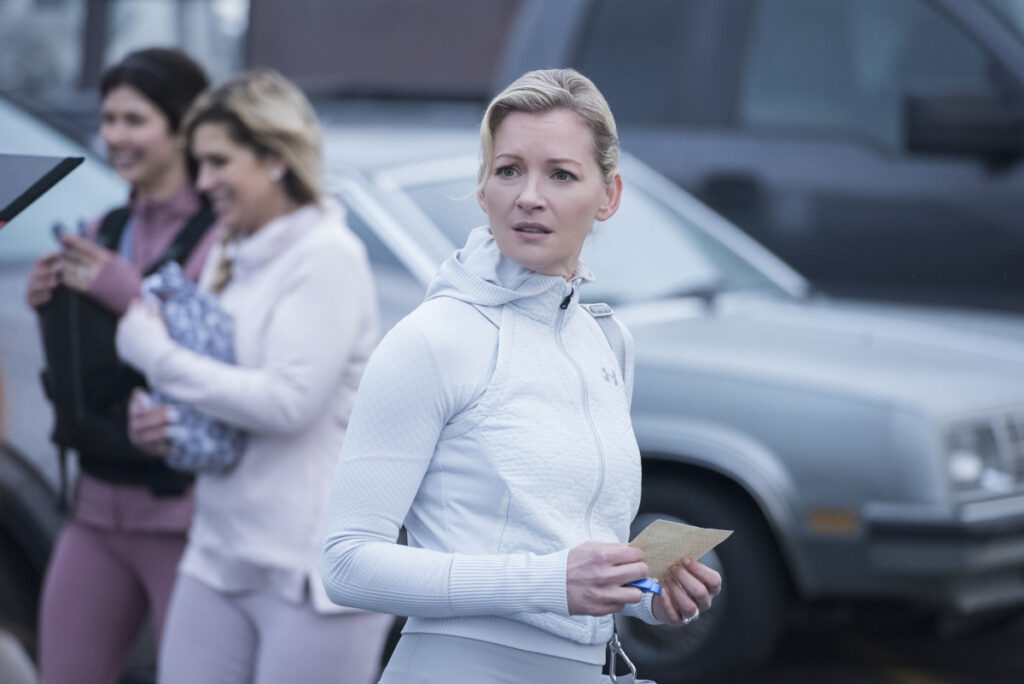The first season of Jordan Peele’s update of the Rod Serling classic “The Twilight Zone” started with a bang, releasing several of its best episodes to start the season before sadly falling back into a more-typical-for-an-anthology inconsistency. Kumail Nanjiani’s Emmy-nominated work in “The Comedian,” a new take on “Nightmare at 30,000 Feet,” the series-best “Replay,” and the intriguing “A Traveler” from Ana Lily Amirpour & written by Glen Morgan set a standard that the show almost immediately receded from with the possible exception of the ambitious finale, “Blurryman.” So what would season two bring? More of that early creative energy or the mid-season sag? Bringing in an acclaimed genre auteur like Osgood Perkins (“The Blackcoat’s Daughter”) to direct an episode seemed like a good idea and there’s talent in front of the camera again this season. And CBS All Access is wisely dropping all ten episodes on June 25th instead of dragging it out. We could use something fresh and new at the end of June 2020. However, the three episodes sent for press don’t give me much hope that this is going to be the escape we need.
It’s a weird dynamic when a critic is asked to review a “season” based on a sample of it. My hope is that “The Twilight Zone” this year will be the inverse of the last. The first impressions last year were countered by the natural ebb and flow of the anthology format. So maybe if the first four episodes sent to press last year were the series best then this year they’re the series worst? That’s my thin hope because every episode in this trio disappoints to varying degrees. They all have some idea that intrigued Peele and his team, but don’t creatively build on those foundations. Serling’s masterpiece wasn’t just a show about twists, even if that’s what history has somewhat reduced it to in memes and clips. It was about subverting ideas, often with social resonance, which makes Peele the perfect man to inherit that throne. All three episodes sent for season two feel thinner on not just social commentary but insight into any aspect of the human condition. They’re more “huh” than “wow,” chapters that may be remembered for their concept but not their execution, and that’s a key difference.

In “Meet in the Middle,” the great Jimmi Simpson (“Westworld”) suddenly hears a voice in his head while he’s on another bad date. It’s a young woman named Annie (Gillian Jacobs) and they can communicate telepathically. These two lost souls end up forming a relationship through their thoughts across the miles, before agreeing to eventually meet. Naturally, it doesn’t go as planned. There’s a super thin parallel to online relationships in that we don’t really know someone until we know them in person, whether that connection is telepathic or on Twitter, but it’s underdeveloped in part because from the minute that the narrative relies on us only seeing his perspective, we know something is up. It’s also another episode that could have been tighter. If “The Twilight Zone” gets a third season, I beg everyone involved to go to a half-hour format. Even the original series suffered in the hour format it employed for only its fourth season. Simpson does strong work in “Meet in the Middle” (he always does) but it doesn’t add up to much of anything and takes a long time to get there.
More goofily entertaining is “The Who of You,” in which a struggling actor (Ethan Embry) decides to rob a bank. As the tension is rising, he locks eyes with the teller, and the two switch bodies “Freaky Friday”-style. And it doesn’t stop there. It turns out he can jump into someone else’s skin just with eye contact, and begins a journey that will cross paths with a psychic played by Billy Porter, a cop played by Mel Rodriguez, and the lead investigator played by Daniel Sunjata. It’s got a fun cast and premise, but again takes too long to fill out a runtime and ends with such a cheap twist that it will provoke an eye roll.

As a huge fan of his film work, I was most excited by Perkins’ “You Might Also Like,” but it’s an ambitious misfire. Gretchen Mol plays a woman in a futuristic, stylized world in which everyone in the world is excited for the impending arrival of something called “the egg.” No one really knows what it is or does but advertising is convinced everyone that they need it. Oh, and there may be aliens. One of the strangest episodes of television this year, “You Might Also Like” will have fans based on its stylish oddity, but I don’t think it’s saying as much about consumerism as its creators do and its tone started to feel more condescending than insightful.
When I’m asked the best show of all time, I often say “The Twilight Zone.” I have written about it extensively for Vulture and The New York Times, and so Serling’s creation is kind of sacred TV ground for this critic. At the beginning of season one, I was thrilled at the idea that this ground had a new genius to build on it in Jordan Peele, but I’m starting to wonder if he’s left too much of the work to others to have the right level of creative control. Why remake “The Twilight Zone” now? What could Serling’s blend of sci-fi and social commentary accomplish in 2020? The answers to those questions seem just out of reach at the start of season two, lost somewhere in … The Twilight Zone.
Three episodes screened for review.












